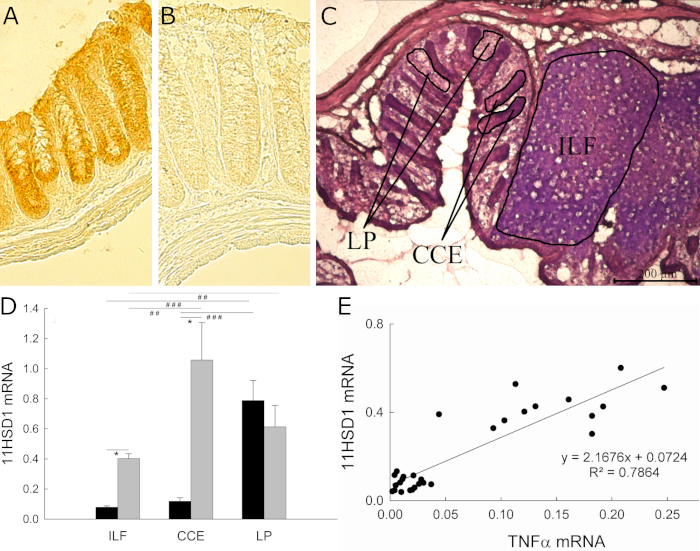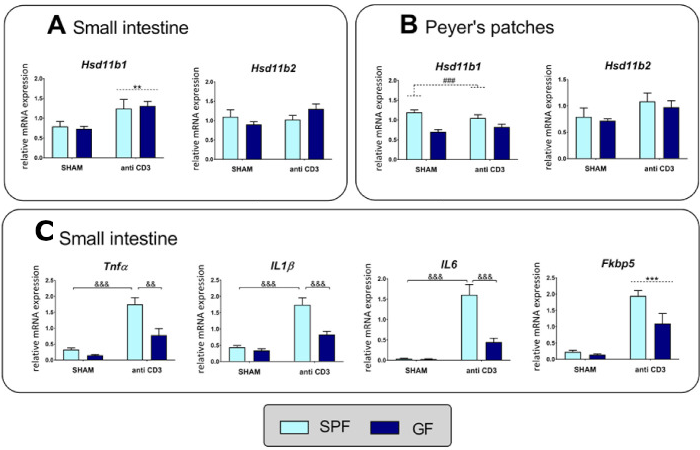Local metabolism of glucocorticoids and intestinal inflammation
Glucocorticoids exert anti-inflammatory and immunomodulatory effects that may be regulated in part by the activities of the glucocorticoid-activating and -inactivating enzymes, 11β-hydroxysteroid dehydrogenase type 1 (11HSD1) and type 2 (11HSD2), respectively. Exposure to proinflammatory stimuli such as TNF-α and IL-1β increases 11HSD1 in some cells, while inducing a decrease of 11HSD2 in others. These findings indicate that changes in 11HSD activity induced by proinflammatory cytokines might contribute to the feedback regulation of inflammation. Our aim is therefore to improve our understanding of the role of 11HSDs in inflammation using animal models of colitis (TNBS and DSS colitis) and acute immune stimulation by anti-CD3 antibody.
|
|
|
Local metabolism of glucocorticoids in DSS-induced colitis. Localization of the enzyme 11HSD1 in mouse colon stained with anti-11HSD1 antibody (A) and negative control (B). Colon with functionally different lymphoid compartments (CCE, epithelial crypts; LP, lamina propria; ILF, isolated lymphoid follicles) (C). Effect of colitis on the expression of 11β-hydroxysteroid dehydrogenase type 1 (11HSD1) in different anatomical compartments of the colon. The bars represent control healthy mice (black bars) and mice with DSS-colitis (grey bars) (D) and regression analysis plot showing the correlation between the levels of 11HSD1 and TNFα mRNA in healthy controls and mice with DSS-colitis (E). Together the results show that inflammation upregulates 11HSD1 in colon including gut immune system and TNFa is crucial cytokine for upregulation of 11HSD1 during inflammation (Ergang et al. 2017). |
|
|
|
Effect of microbiota and acute immune stress elicited by anti-CD3 injection on the expression of gene Hsd1b1 encoding 11β-hydroxysteroid dehydrogenase type 1 and gene Hsd11b2 encoding 11β-hydroxysteroid dehydrogenase type 2 in the small intestine (A) and Peyer’s patches (B), and gene expression of tumor necrosis factor α (Tnfα), interleukin 1β (IL1β), interleukin 6 (IL6) and co-chaperone FK506 binding protein 5 (Fkbp5) (C). The expression of Hsd11b1 is increased by anti-CD3 in small intestine, regardless of microbiota, whereas in Peyer’s patches its expression depends on microbial status. Both anti-CD3 antibody and microbiota alter the expression of cytokine and glucocorticoid-responsive genes in small intestine (Ergang et al. 2021). |


